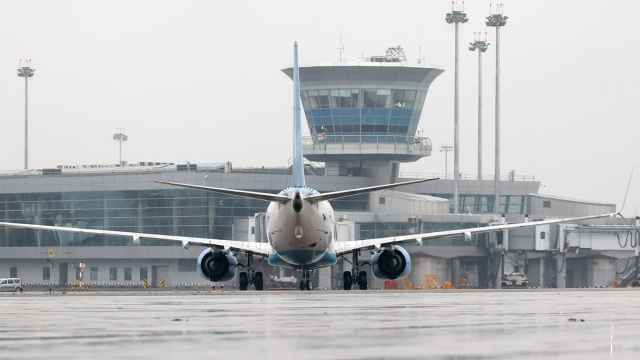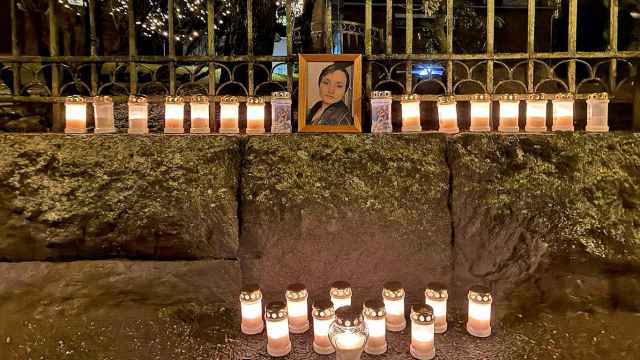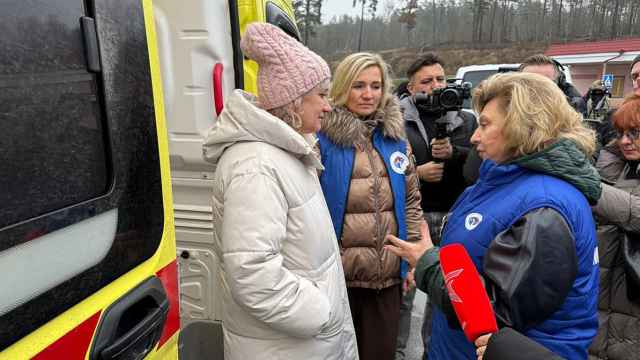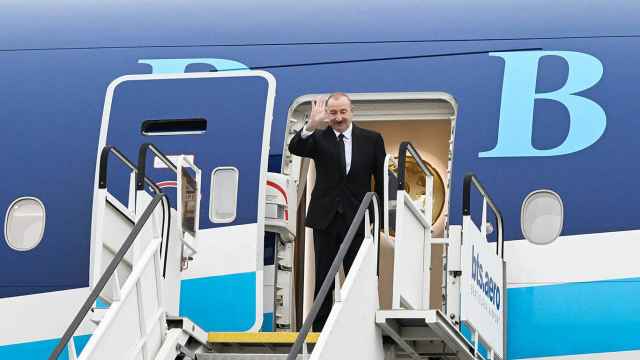Foreign specialists may apply for residency permits and no longer need to deregister every time they go away for more than three working days, according to amendments signed Monday by President Dmitry Medvedev.
The liberalization, already approved by the State Duma and Federation Council, should help attract more foreign specialists and family members in line with government policy that saw the introduction of three-year visas and work permits last summer, the Kremlin said in a statement.
While this could reduce cumbersome red tape for expats, experts warned that it remained to be seen how the regulations would be applied by the country's notorious bureaucracy.
Getting a residency permit could prove attractive for spouses and other family members because it would enable them to take up work without having to get a work permit and a new visa, said Vladimir Kobzev, chief lawyer of the Russo-German Chamber of Commerce.
Usually, foreign employees' family members are given special visas that do not allow them to work.
Kobzev said expats — not employers — may apply for the new three-year residence permit at the Federal Migration Service, though the service has yet to issue guidelines on the procedure.
Calls to the migration service's press office went unanswered Monday.
Another novelty approved by Medvedev concerns registration requirements.
Currently, foreigners must deregister with their local migration authorities whenever they leave their place of residence for more than three working days — and if they travel within Russia, they must register at their destination.
Under the new rules, the three-day limit is replaced by 90 days — meaning that most business and private travel can be done without paperwork, Kobzev said.
The whole liberalization, however, only applies to highly skilled specialists, defined by a minimum annual salary of 2 million rubles ($66,000). All other foreigners have to follow the old rules.
The revised rules introduced last summer follow Medvedev's declared aim to attract more foreign investors to bolster his modernization policies.
But they have been beset by bureaucratic twists like the requirement that work contracts be rewritten to last for the same three-year period as the new visas. Migration officials said earlier this month that only some 2,000 foreign specialists entered the country since July.
In a bizarre turn, the new rules do not apply to those who fought for them most — the heads of foreign business associations.
Monday's Kremlin statement clearly says the reforms apply to specialists at local branches of foreign companies. While there are also easier visa rules for scientists and teachers, staff at representative offices and other legal entities are not covered.
This leaves a noncommercial organization like the Russo-German Chamber of Commerce out in the cold, Kobzev said.
"Even our director, Michael Harms, needs to renew his visa every year," he said.
In another twist, the government still has not managed to lift new tariffs on expats' household goods that also came into force last summer.
The duty slaps a 4 euro ($5) charge on every kilogram of household items, which were formerly customs exempt. With just the first 50 kilograms duty free, the tariff can easily add a $20,000 bill to some families’ move.
After protests from foreign business associations, the government promised in August to revoke the rules, which came with the Customs Union with Belarus and Kazakhstan.
But Alexander Korsunov, a spokesman for the Customs Union's commission, said the issue was not solved at the body's most recent session on Dec. 8.
"We are now looking at a decision in late January," he told The Moscow Times last week.
Some expats have lived in Moscow for half a year without their goods after putting them in storage because of the fee.
A Message from The Moscow Times:
Dear readers,
We are facing unprecedented challenges. Russia's Prosecutor General's Office has designated The Moscow Times as an "undesirable" organization, criminalizing our work and putting our staff at risk of prosecution. This follows our earlier unjust labeling as a "foreign agent."
These actions are direct attempts to silence independent journalism in Russia. The authorities claim our work "discredits the decisions of the Russian leadership." We see things differently: we strive to provide accurate, unbiased reporting on Russia.
We, the journalists of The Moscow Times, refuse to be silenced. But to continue our work, we need your help.
Your support, no matter how small, makes a world of difference. If you can, please support us monthly starting from just $2. It's quick to set up, and every contribution makes a significant impact.
By supporting The Moscow Times, you're defending open, independent journalism in the face of repression. Thank you for standing with us.
Remind me later.






